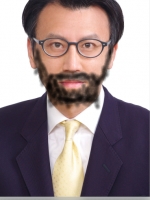Firms including Sony Music, Universal Music Group and Warner Records say Suno and Udio have committed copyright infringement on an "almost unimaginable scale".
包含索尼、環球、華納唱片等公司對Suno及Udio提起侵害著作權訴訟,稱其等以超乎預期地規模侵害唱片公司的著作權。
They claim the pair's software steals music to "spit out" similar work and ask for compensation of $150,000 (£118,200) per work.
唱片公司主張上開兩人工智能公司的軟體剽竊唱片公司的音樂,進而創作出相似的作品;唱片公司就每一著作請求15萬美元之損害賠償。
Suno did not respond to a request for comment. Udio said in a blog post on Tuesday it was "completely uninterested in reproducing content".
Suno未對此事作出回應;Udio於其部落格回應說:其對重製著作不感興趣,亦即否認有重製或利用上開唱片公司之著作。
The lawsuits, announced on Monday by the Recording Industry Association of America, are part of a wave of lawsuits from authors, news organisations and other groups that are challenging the rights of AI firms to use their work.
全美唱片業協會20240624稱道:此訴訟僅係音樂創作人、新聞業和其他同業日後將提起訴訟中的一個;其挑戰人工智能公司利用其等著作藉以保護創作者的權利。
Suno, which is based in Massachusetts, released its first product last year and claims more than 10 million people have used its tool to make music.
位在麻州的Suno,去年發表其第一個編輯音樂之人工智能軟體,號稱已有1千萬人以上利用該軟體去創作音樂。
The company, which has a partnership with Microsoft, charges a monthly fee for its service and recently announced it had raised $125m from investors.
Suno與微軟係合夥關係,對所提供上揭服務每月收取月費,近來公布對發明軟體團隊加薪至1千2百5十萬美元。
New York-based Udio, known as Uncharted Labs, is backed by high-profile venture capital investors such as Andreessen Horowitz.
It released its app to the public in April, achieving near-instant fame for being the tool used to create "BBL Drizzy" - a parody track related to the feud between the artists Kendrick Lamar and Drake.
In the past, AI firms have argued that their use of the material is legitimate under the fair use doctrine, which allows copyrighted works to be used without a licence under certain conditions, such as for satire and news.
Supporters have compared machine learning by AI tools to the way humans learn by reading, hearing and seeing previous works.
Udio said its system was "explicitly designed to create music reflecting new musical ideas".
It added that it had "implemented and continue to refine state-of-the-art filters to ensure our model does not reproduce copyrighted works or artists’ voices".
"We stand behind our technology and believe that generative AI will become a mainstay of modern society," the company said.
But in the complaints, which were filed in federal court in Massachusetts and New York, the record labels say the AI firms are simply making money from having copied the songs.
"The use here is far from transformative, as there is no functional purpose for... [the] AI model to ingest the Copyrighted Recordings other than to spit out new, competing music files," according to the complaints.
The complaints say Suno and Udio produce works like Prancing Queen that even devoted ABBA fans would struggle to distinguish from an authentic recording from the band.
Songs cited in the Udio lawsuit include Mariah Carey's All I Want for Christmas is You and My Girl by The Temptations.
"[The] motive is brazenly commercial and threatens to displace the genuine human artistry that is at the heart of copyright protection," the record labels said in the lawsuits.
They said there was nothing about AI that excused the firms from "playing by the rules" and warned that the "wholesale theft" of the recordings threatened "the entire music ecosystem".
The lawsuits come just months after roughly 200 artists including Billie Eilish and Nicki Minaj signed a letter calling for the "predatory" use of artificial intelligence (AI) in the music industry to be stopped.
